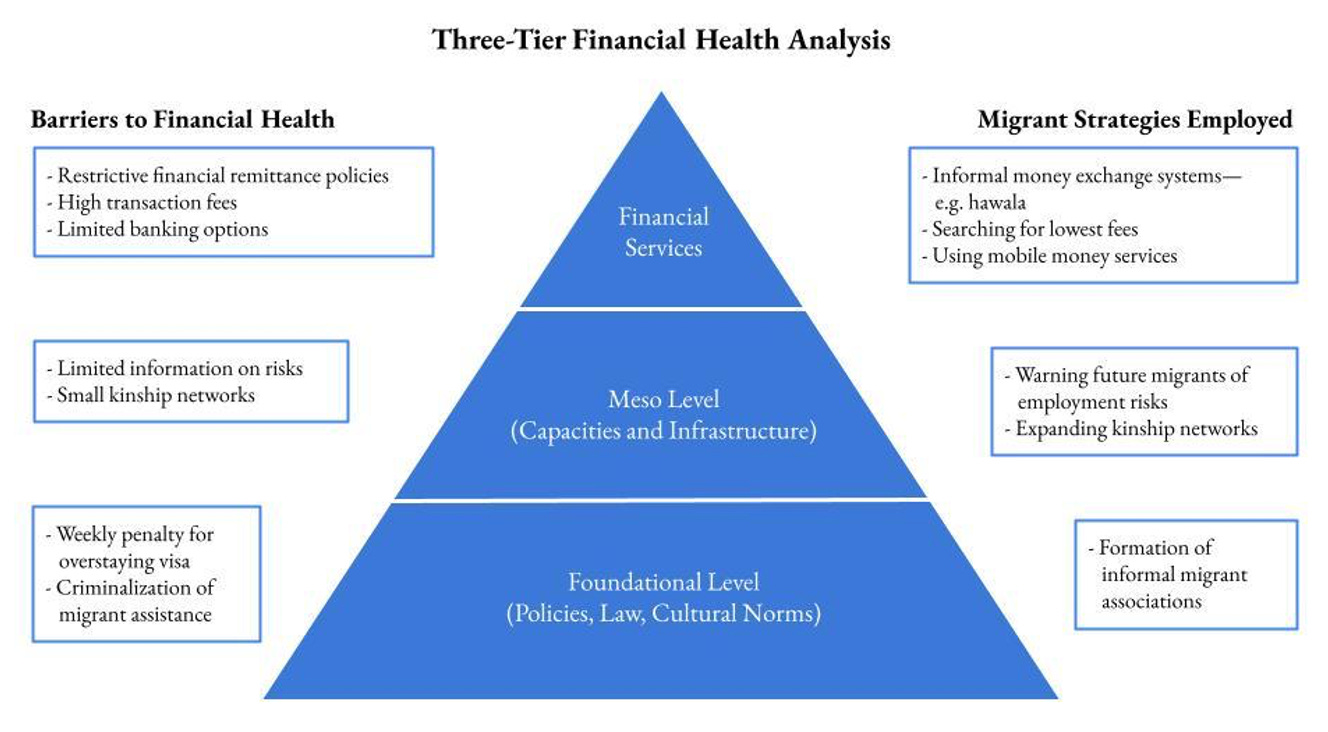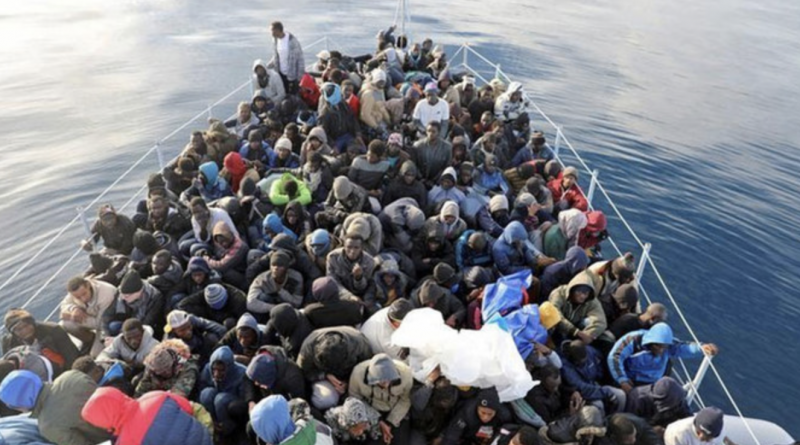Sub-Saharan Migrants and Students in Tunisia
A case study of Tunisia as destination and transit country
In this issue of Fresh FINDings we feature a new case study exploring the various financial strategies sub-Saharan migrants and students in Tunisia adopt in the face of stringent laws, unavailable legal assistance, and poorly designed financial products.
Please visit the Journeys Project at Tufts University for previous studies, ongoing research, videos, maps, and artwork on refugees and migrants in the Middle East and Mediterranean, Latin America, and Africa.
This month…
- Join the Journeys Project and our FIND research in the upcoming Financial Inclusion Week, Nov. 1-4! Register here.
- A case study of West African workers and students in TunisiaFinancial Inclusion Week, November 1-4
Each year, the Center for Financial Inclusion hosts Financial Inclusion Week, inviting partner organizations to showcase their work and research, discuss ideas on what’s ahead, and share perspectives from around the world.
The Journeys Project and the FIND research we participated in will be featured, and we’d love to see you there! Attendance is free of cost.
Cross-Saharan Migration to Tunisia: A case study of West African workers and students
By Kenza Ben Azouz, Jeremiah Gaitlin, Ingrid Magalhaes, Jayshree Venkatesan, and Kim Wilson
Nestled between Algeria and Libya, Tunisia is a frequently overlooked, but important, destination and transit country for migrants traveling from sub-Saharan Africa. Unlike its neighboring countries that are seen as pays-étape (stepping-stones), Tunisia’s migrant community includes more than people in transit. It includes refugees and asylum seekers, economic migrants seeking improved livelihoods, environmental migrants seeking relief from poor harvests, as well as victims of trafficking. It also includes unaccompanied minors (children traveling alone) and stranded migrants.
Tunisia’s geographical location and proximity to Europe make it an attractive destination, both for those who might like to settle there or to treat as a jumping off point to Europe. As this report is being written, the political situation in Tunisia has begun to deteriorate producing a fragility that may have repercussions throughout the region.
Read the full case study on migrants and students in Tunisia here.
Located between Libya and Algeria, the small nation of Tunisia has played a key role in shaping the migration policies of the European Union. Tunisia is currently both a destination and transit country, attracting migrants from sub-Saharan Africa for education, work, and hopes of a better future.
Migrant Backgrounds: Where You Come from Shapes What You Do
Social divisions between migrant workers and students resulted in different financial strategies and reaffirmed the existing socio-economic divides. We also saw, however, common themes for both sets of migrants.
Socioeconomic backgrounds along with family practices and norms influenced the financial strategies that participants in our interviews used, which impacted their financial health. Migrants with a higher socioeconomic status appeared more equipped to deal with financial challenges and debt by developing strategies that circumvented costs related to housing, transportation, and money transfer fees.
Tunisia as a destination for work
The lack of regular status or work permits posed the biggest challenge for migrant workers. Without any legal avenues to pursue work in Tunisia, migrant workers tended to view the country as a transit to better opportunities, making them susceptible to trafficking from their country of origin, albeit often without their knowledge, and other forms of smuggling. Informal networks are sources for most information about working and housing conditions. However, these networks can be inaccurate and unreliable, leaving migrants vulnerable to abuse and exploitation in the immediate aftermath of arrival through cross-country trafficking rings.
Without legal status, sub-Saharan migrants working informally in Tunisia lack worker protection remedies afforded under Tunisian law. As a result, sub-Saharan migrants are unable to report chronic exploitation by Tunisian employers. Wage theft, long working hours without breaks, and wages well-below the national minimum wage are just a few of the abuses experienced.
Tunisia as a destination for education
Tunisia is a popular destination for students, especially those coming from countries like Cote D’Ivoire, DR Congo, the Central African Republic, and Mali. In comparison to their own countries, Tunisia is perceived to have a better quality of education. Tunisian universities advertise in these countries to attract students and getting a visa in Tunisia is easier than in European countries.
Still, most students appeared to be more financially stable when compared to migrants who moved for employment; They at least had the means to meet basic needs. We attribute this to students’ regular legal status in Tunisia, which allowed them to open bank accounts and access financial support from friends and family, in addition to their generally less precarious socio-economic backgrounds. By legally residing in Tunisia, they were able to receive remittances from their families and gain access to familiar financial services.
Check out the full case study for a deep dive into how background impacted financial strategies.
Migrant Financial Health and Strategies
By using this three-tier analytical framework proposed by Dr. Karen Jacobsen and Professor Kim Wilson, this study assesses migrants’ overall financial health (or financial well-being), looking at their ability to achieve five key criteria. These five criteria intersect at all levels of analysis, reflecting the complex, interconnected factors that impact the financial lives of migrants in Tunisia.

Recommendations
We provide the following recommendations for the international community and Tunisian policymakers to consider, to prevent situations of precarity for migrants, and avoid humanitarian disasters as the influx of migrants increases.
- Legal mechanisms: Strengthen the asylum system within Tunisia, improve access to work visas, and re-examine migration agreements between Tunisia and the EU that outsource migrant management to Tunisia.
- Capacities and infrastructure: Improve access to formal information about legal assistance and basic migrant rights through non-government organizations.
- Access to financial services: Making inward and outward remittances affordable and convenient can contribute positively to Tunisia’s economy in the long run through trade and development. Simplifying formal banking processes and making savings bank accounts accessible and affordable can have positive benefits for both migrants as well as Tunisia’s economy.
Fresh FINDings is made possible through a partnership among Tufts University, the Katholische Universität Eichstätt – Ingolstadt (Catholic University or KU), the International Rescue Committee, and GIZ. Fresh FINDings also features work sponsored by Catholic Relief Services, Mercy Corps, and the International Organization for Migration.
Contact: Kimberley.Wilson@tufts.edu

